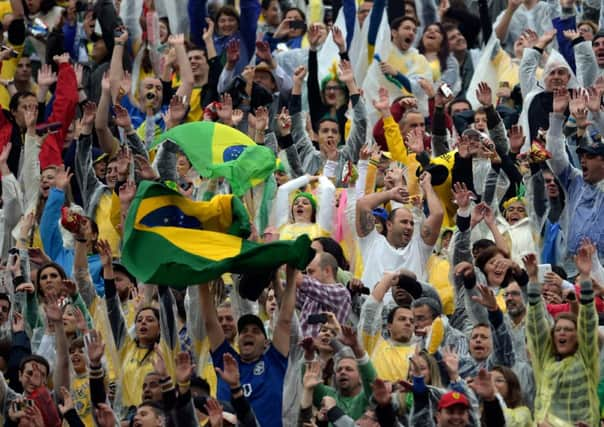Businesses can cope with World Cup fever


World Cup hysteria is almost upon us once again. Thursday will see the opening tie take place between Brazil and Croatia in Sao Paulo at 9:00pm GMT. As with any event which generates such wide public interest, this can give rise to management headaches for employers as well as frustrations for employees who wish to indulge their passions.
England is the only UK representative taking part in the tournament. Whilst one might expect more acute interest from employees within English-based businesses, it is of course possible that the independence debate will have stirred up more interest than usual across Scotland from pro-unionist football fans. That is not of course to suggest that the average football-supporting Scot would decline to lend his support to England.
Advertisement
Hide AdAdvertisement
Hide AdIt is common in situations like this that, at key stages of the tournament, employers will experience a higher level of so called “sickies” from employees; increased requests for annual leave; increased web traffic on their systems as employees keep track of events on dedicated websites as well as on social media sites.
There may also be concerns in businesses operating “no alcohol” policies, should employees be tempted by a tipple or two during matches. More generally though, all of these issues can have serious impacts on productivity for employers.
Likewise, employees who are passionate about football will wish to take advantage of their right to annual leave or other flexibilities from their employers, in order to enjoy matches at key stages in particular. They may face difficulty in the form of competition from colleagues, who quite reasonably would make the same requests. This can give rise to frustrations, grievances and conflict. Similarly, this can impact on productivity, as well as morale, in the workplace.
Employers are entitled to adopt a “business as usual” approach to operations during the tournament, the grand finale of which takes place on Sunday, 13 July. Should that be its position, employers would be well advised to make a clear announcement in these terms to employees.
Similarly, it is advisable for employers to reiterate its policies on absence management, sick leave, annual leave and PC and internet use – as well as its position on alcohol in the workplace.
That said, engaging with the workforce wherever possible could avoid negative impacts on productivity between this Thursday and the World Cup final. Employers are generally encouraged to consider flexible working arrangements wherever those can be facilitated without unacceptable business disadvantages. For example, business may allow staff to vary break times; swap shifts; access radios or TVs during work or vary start and finish times.
Should businesses be willing to consider arrangements such as these during the World Cup and key stages of it, appointing a designated contact for requests might be helpful.
In any event, employers would remain well-advised to reiterate its policies and procedures, should any such requests be refused. This might assist in minimising the risk of temptation to breach company procedures in order to enjoy the competition.
Advertisement
Hide AdAdvertisement
Hide AdFor those employees desperate to see some of the mouth-watering ties being played, its best to make any relevant requests for holidays or flexible working arrangements as soon as possible. They should bear in mind, however, that employers are entitled to prioritise the needs of the business and have a duty to act consistently and fairly to all who may make similar requests for whatever reason throughout this period.
Key stages of the tournament, likely to generate most interest, are the opening match on Thursday; the quarter finals on 4 and 5 July (5pm & 9pm); semi finals on 8 and 9 July (9pm) and the final on Sunday, 13 July (8pm).
• John Lee is an associate and solicitor advocate specialising in employment law with DWF www.dwf.co.uk
SEE ALSO